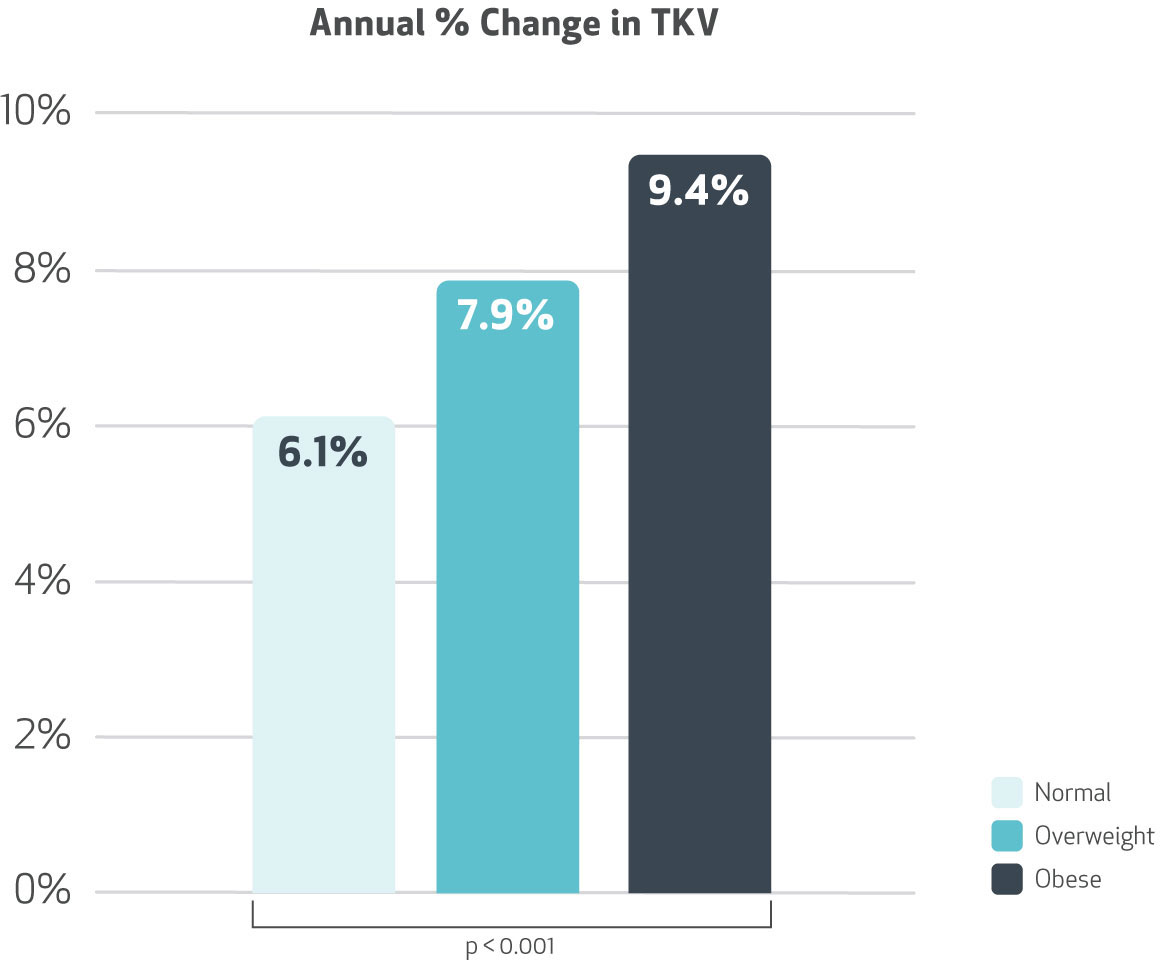Other Risk Factors
Overweight and Obesity
Obesity was associated with nearly four times greater adjusted odds of progressing at an annual rate of change in TKV of ≥ 7% compared with < 5%. Obesity was also independently associated with greater eGFR decline (slope) versus normal weight.1
- Four hundred forty-one participants with early ADPKD who participated in HALT-PKD Study A, were included in the analysis of the association of overweight and obesity with change in TKV.
- Participants were categorized by baseline BMI*:
- Normal weight: 18.5–24.9 kg/m2 (n
=192) - Overweight: 25.0–29.9 kg/m2 (n
=168) - Obese:
≥30 kg/m2 (n=81)
- Normal weight: 18.5–24.9 kg/m2 (n
- Overweight and obesity was associated with increased odds of annual percent change in TKV
≥7% compared with < 5% (overweight: OR, 2.02; 95% CI, 1.15 to 3.56; obese: OR, 3.76; 95% CI, 1.81 to 7.80)+.

Albuminuria and Proteinuria in ADPKD
CRISP cohort provided longitudinal evidence for associations between elevated albumin-to-creatinine ratio (ACR), increased TKV and decreased eGFR22Albuminuria
- Microalbuminuria is more common than proteinuria, occurring in 35% of ADPKD individuals.2
- Direct evidence that reducing albuminuria in ADPKD affects progression to ESKD is not currently available3
- Some evidence that an elevated ACR is a risk factor for progressive disease and should be included in the decision to target lower blood pressures and increase the dose of RAAS inhibitors.3
Proteinuria
- Dipstick-detectable proteinuria occurs in <18% with most demonstrating <1 g/24 h.2
- Overt proteinuria is uncommon in ADPKD, with only 27% demonstrating 300 mg/d.4
- Proteinuria >2 g/d is unusual and suggests the presence of another kidney disease.4
The information provided on the ADPKDsim website is intended for your educational benefit only. It is not intended as, nor is it a substitute for medical care or advice or professional diagnosis.
Health care professionals should use their independent judgment when reviewing the ADPKDsim's educational resources. Users seeking medical advice should consult with a health care professional.

